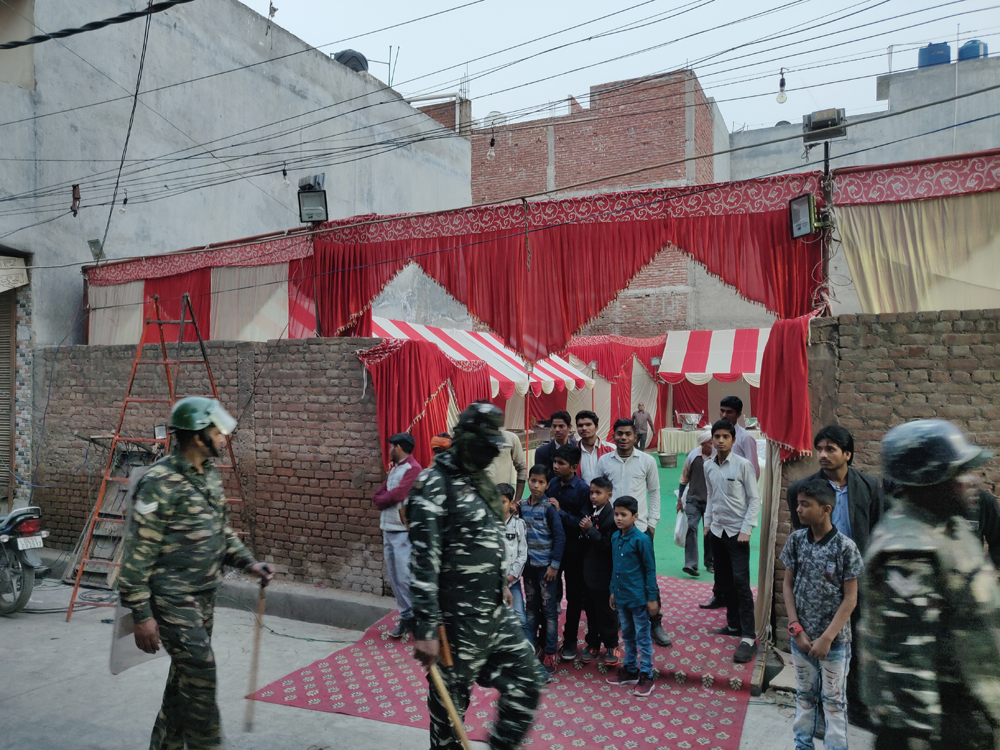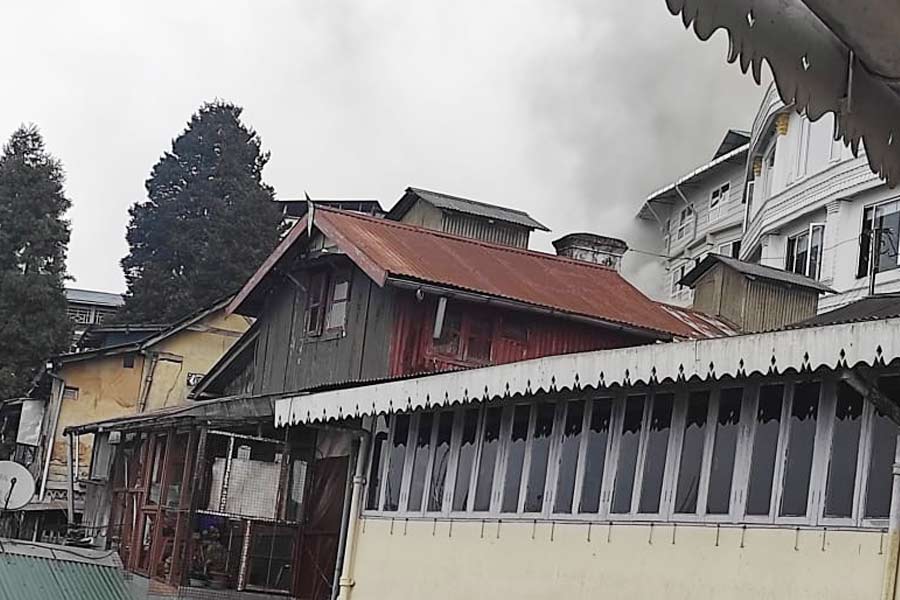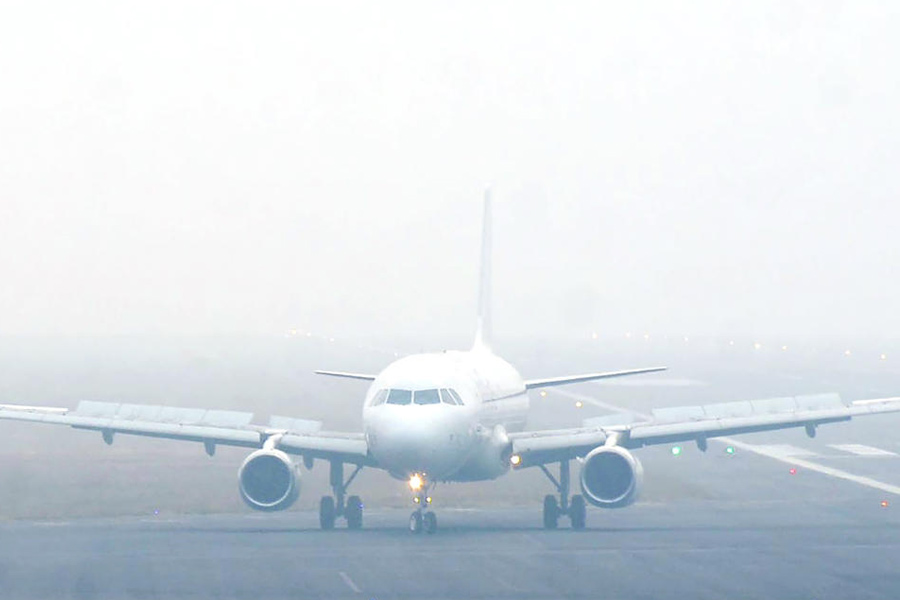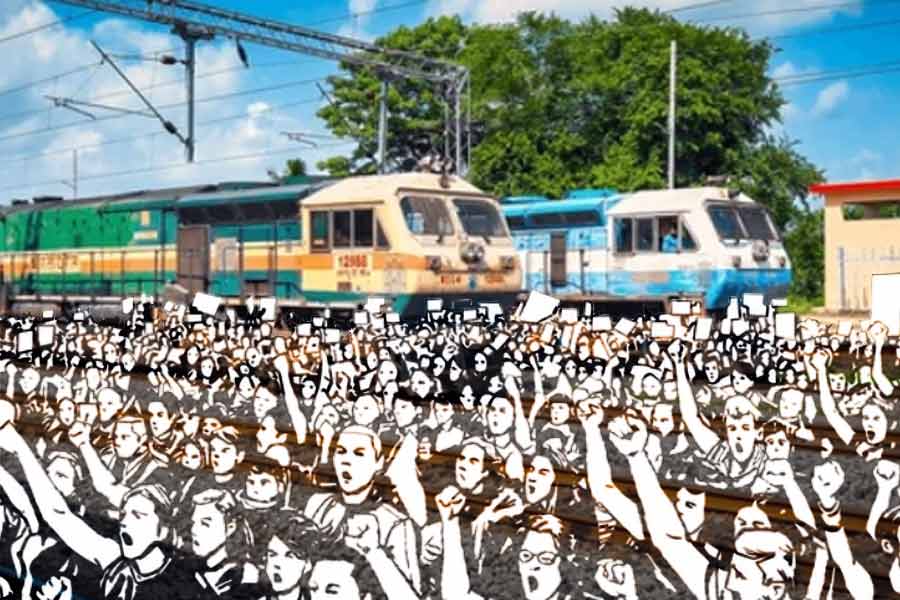Few lanes down the road of what looks like a ghost town with burnt houses and charred vehicles, a family in north east Delhi's Shiv Vihar was busy making preparations for a wedding.
Kunwar Pal Singh's daughter, Bhavna, was getting married even as curfew remained imposed for the second day in the area. Delhi police and paramilitary forces had conducted flag marches too.
A colourful tent was put up to welcome guests and in a bylane rotis were made in a tandoor.
Singh said Thursday's date was fixed in January and they couldn't have known that 'jhagda (fight)' would make things difficult.
'The baraat is coming from Aligarh and can easily come here from the UP side,' Singh told Telegraph Online with reference to the neighbourhood sharing borders with the Uttar Pradesh town of Loni.
Located in one corner of Delhi, Shiv Vihar is among the areas worst hit by the recent violence. It is a Hindu majority neighbourhood with clusters of Muslim families.
On Sunday, inflammatory speeches by BJP leader Kapil Mishra at Maujpur chowk had led to a flare-up which has since led to deaths of 38 people. Over 200 people were injured.
Singh, a contractor by profession, said he wasn't worried about violence as his mohalla comprised people of the same community. Also, the situation was peaceful.
Hardly 100 meters from Singh's decked-up house, a shop had been burnt and destroyed. A few metres further, a mohalla of Muslim residents bore a haunted look. Every house and shop there had been gutted.
Joint Commissioner of Police Suvashis Choudhary, who was leading a flag march in the area, pointed to the wedding to say that not everything was ' upside down'.
There was some 'disturbance' but, he added, that normality would return soon.
As the flag march moved further ahead, local residents told a group of journalists, including this reporter, that moving around without police presence wasn't advisable as ' anything' could happen.











